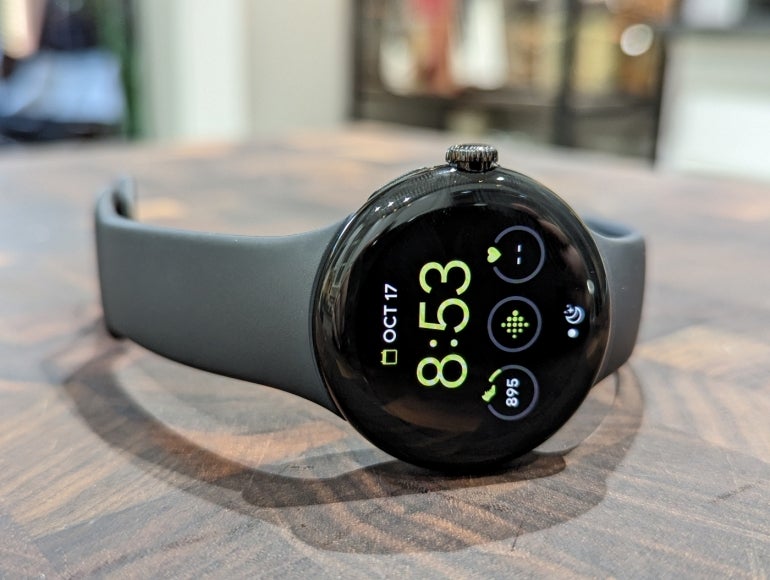
I’ve been sporting a Samsung Galaxy Watch Active2 for a few years now. Of all the wearables I’ve used, that watch really hit the sweet spot. It was very easy to use, highly functional and offered plenty of options. It wasn’t, however, terribly reliable. I’d set alarms or timers, and they wouldn’t go off. The split time functionality wouldn’t always give me my times while running, and the battery life was starting to show its age.
SEE: BYOD Approval Form (TechRepublic Premium)
So, when Google finally put the Pixel Watch up for pre-order, I jumped on it hard and fast. It took them no time to deliver the goods. That delivery coincided with the appearance of my new Pixel 7 Pro, so there was all kinds of shiny new magic going down in my digital world.
After roughly a week of using the Pixel Watch, I have some impressions, most of which are quite good. If you care to get a real-world perspective on this new tech, read on.
The setup
For nearly every piece of Pixel hardware I’ve ever experienced, the setup process has been absolutely top-notch. The Pixel Watch defied that trend. What should have been a simple and seamless process was quite convoluted and time-consuming. Even when connecting the watch to a new phone, it wasn’t nearly as easy as I expected it should have been.
However, after a few tries, I finally managed to get the watch connected to the phone. But then, the update started. Once again, this should have been a simple process, but it took over an hour for the phone to transfer the new updates to the watch.
The lesson here? Be patient with the process, and let every step complete before you panic and restart the whole mess. Let it all unfold.
Beyond the initial headache
During the setup process, I grew increasingly concerned that my experience with the device would be less than stellar. However, once everything was working, everything started looking up.
My immediate impression of the Pixel Watch, after the frustration that was the initial setup, could be summed up with a single word: wow. The user interface was buttery smooth and made perfect sense.
Even though, compared to the Active2, there weren’t nearly as many watch faces to choose from, I was able to quickly find an elegant face that included what I needed and was easy to read. With that set, I set out to see just how well this new watch would perform. The plus-side takeaway, in bulleted list form, looks something like this:
- There’s much more functionality than the Samsung Watch.
- The animations are flawless.
- Interactivity with features, such as Google Keep, is brilliant.
- Battery life is a solid 24+ hours.
- Getting a full charge takes less than half the time it does with my Galaxy.
- The watch feels much more comfortable than the Galaxy.
- Everything is easier to read on the Pixel Watch, including notifications from third-party apps like Facebook Messenger.
- Alarms and times actually work as expected.
- The heart rate monitor is far more accurate than the Galaxy Active2.
- You can lock the watch with a PIN or pattern.
Of course, a bulleted list doesn’t really do the Pixel Watch justice. Now, to be fair, I’ve never had an Apple Watch, so I have no idea how the other half lives. But compared to the six or so Android watches I’ve gone through, the Pixel Watch blows them all away. This device is elegant, smart, well-designed and user-friendly, and it actually works as expected.
A few notable drawbacks
Does that mean there aren’t a few dings against Google’s newest wearable? Of course not. One of the biggest disappointments is the lack of audible or tactile notifications of split times when running. In fact, when in the middle of a run, I’ve yet to find a way to pause the activity.
With the Samsung Galaxy Active2, I could simply press a button to pause, and the same button to restart. That’s not the case with the Pixel Watch. I’ve yet to test to see if the operating system automatically detects if I’ve paused or not, and the Fitbit app, which you need to install along with the Pixel Watch app, doesn’t offer much help in that.
To be honest, I’d say the Pixel Watch is considerably less functional as an exercise tracker than the older Galaxy Watch. This is probably by design to get users to purchase a Premium Fitbit plan. If that’s the case, I’m going to call Google out.
There are hordes of users out there who purchase smartwatches to track exercise. If you require a premium for pretty basic functionality for tracking such activity, you’re going to lose consumers to the competition. I’ve already paid a premium for the watch, I shouldn’t have to then pay a premium for functionality that’s baked into other devices.
The other issue I have is that Google Pay on the watch doesn’t work. Even though I’ve set up and authenticated my card, even point of sale machines that work with my Pixel 7 Pro do not work with the watch. The point of sale terminal always says, “Unrecognized Card.”
But, those issues aren’t deal-breakers, especially given how good everything else is in the watch. And given how new the Pixel Watch is, I’m certain Google will make adjustments as updates arrive. All things considered, I’m 100% thrilled with the purchase and haven’t missed my old Active2 watch in the least.
If you’re on the fence about the Pixel Watch, leap on over to the side of purchase. Even with its hiccups, the device is a brilliant piece of wearable technology that should make any consumer happy.







